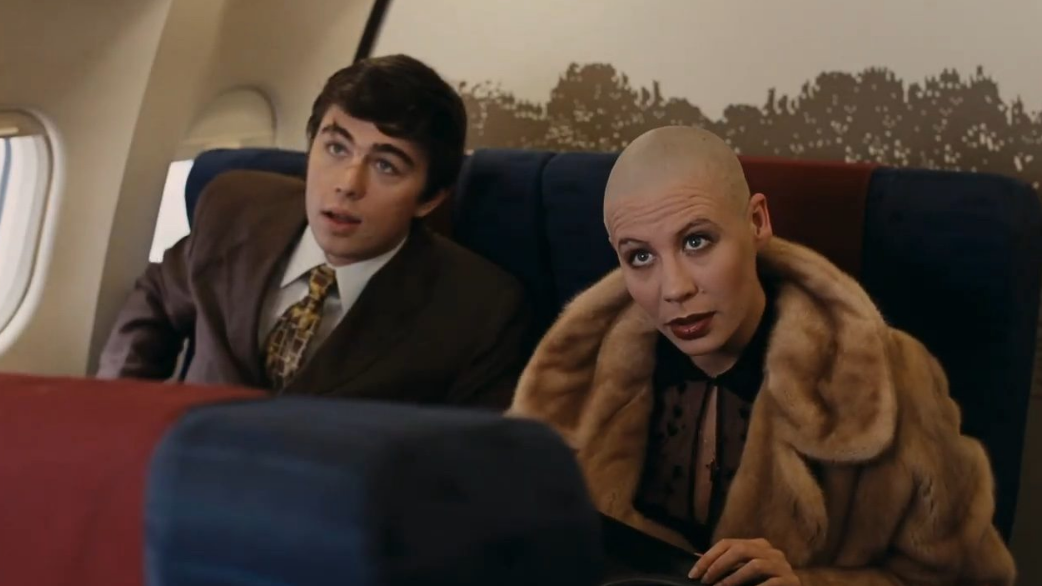Filed Under: Video > Entertainment > Aleksei Balabanov's "Brother 2" (2000)
Aleksei Balabanov's "Brother 2" (2000)
[2 items]
Directed by Aleksei Balabanov (1959-2013), Brother 2 (2000) is the sequel to the cult gangster drama Brother (1997). Unlike the first film, which was made on a shoestring budget and surprised its own creators with its blockbuster success, Brother 2 was a high-cost production that included filming on location in Moscow, New York, and Chicago.
The sequel picks up in 1999, with Danila living in Moscow. In a nod to Sergei Bodrov, Jr.’s, status as a real-life celebrity, Danila appears on state television alongside fellow veterans of the First Chechen War, brothers-in-arms who helped save each other’s lives. At the studio, he encounters pop-music star Irina Saltykova (1966-), who plays herself, but does not recognize her because of his single-minded dedication to Russian rock groups like Nautilus Pompilius. Soon after, Danila learns that Kostia, one of his frontline buddies, has been murdered because he dared challenge the unfair treatment received by his twin brother, who plays for the NHL in Chicago. In his steadfast and loyal fashion, Danila vows to honor his fallen comrade’s last wish, and, having reunited with his older brother Viktor (Viktor Sukhorukov, reprising his role from the first Brother), he travels to America to save Kostia’s brother from the Chicago-based Ukrainian mafia and their American businessman boss. Ethnic and racial conflict play an outsized role in Balabanov’s portrayal of America, a place inflated to mythical proportions in the late Soviet Union that now reveals itself to Danila and Viktor as crass and soulless.
Danila’s own musical idol, Nautilus’s Vyacheslav Butusov (1961-), bade America a symbolic farewell in his perestroika-era ballad “The Last Letter” (1988), one of Brother 2’s most important leitmotifs. The film, accordingly, presents the USA of 1999 as inhospitable to emerging post-Soviet Russian identity, at least as represented by Danila and Viktor. In his travels, Danila meets an African-American news anchor, whom he beds as easily as he did Saltykova, then instantly forgets. A more meaningful encounter is with a Russian prostitute named Dasha (Darya Yurgens, 1968-), whom Danila resolves to rescue and return to Russia, where he believes she ultimately belongs. Dasha’s immigration story is rife with heartbreak, betrayal, and violence, which Balabanov paints as inevitable given the incompatibility of American capitalism with the “Russian soul.”
Although Brother 2, like its predecessor, is a gangster thriller, its underlying conflicts are not criminal but cultural or even civilizational. As he did in Chechnya, Danila attempts to intervene with military-grade weaponry and violence. In presenting post-Soviet immigrant life in the United States as warfare, and in placing Danila in the position of arbiter and, ultimately, victor, Balabanov’s sequel openly challenges the notion that Western-style cultural model is Russia’s only viable alternative to communist rule. Brother 2 features even more severe, even gleeful, racism and xenophobia than its predecessor. Some of the characters’ pronouncements have been immortalized in the Russian vernacular of the 2000s and 2010s—for instance, in the context of Russia’s 2014 annexation of Crimea. As was the case with the first Brother film, it is unclear whether Balabanov is merely diagnosing Russians’ deeply held attitudes, or endorsing them.
Despite—or perhaps because of—this ambivalence, Brother 2 became a hit in Russia and gained acclaim in the West. A major source of its appeal is its soundtrack, which features a variety of post-Soviet rock bands. Meanwhile, Danila’s lines from the sequel, “Strength is in truth” (Sila v pravde) and “At war, Russians do not abandon their own” (Russkie na voine svoikh ne brosaiut), have been methodically weaponized as wartime slogans by Russian state propaganda to rationalize and build support for the full-scale invasion of Ukraine on 24 February 2022. Soon after, in the wake of Hollywood’s exit from the Russian film market, it was announced that Brother 2 would be widely screened in theatres nationwide. The film’s re-premiere took place on 24 March, a month to the day after the invasion began.

